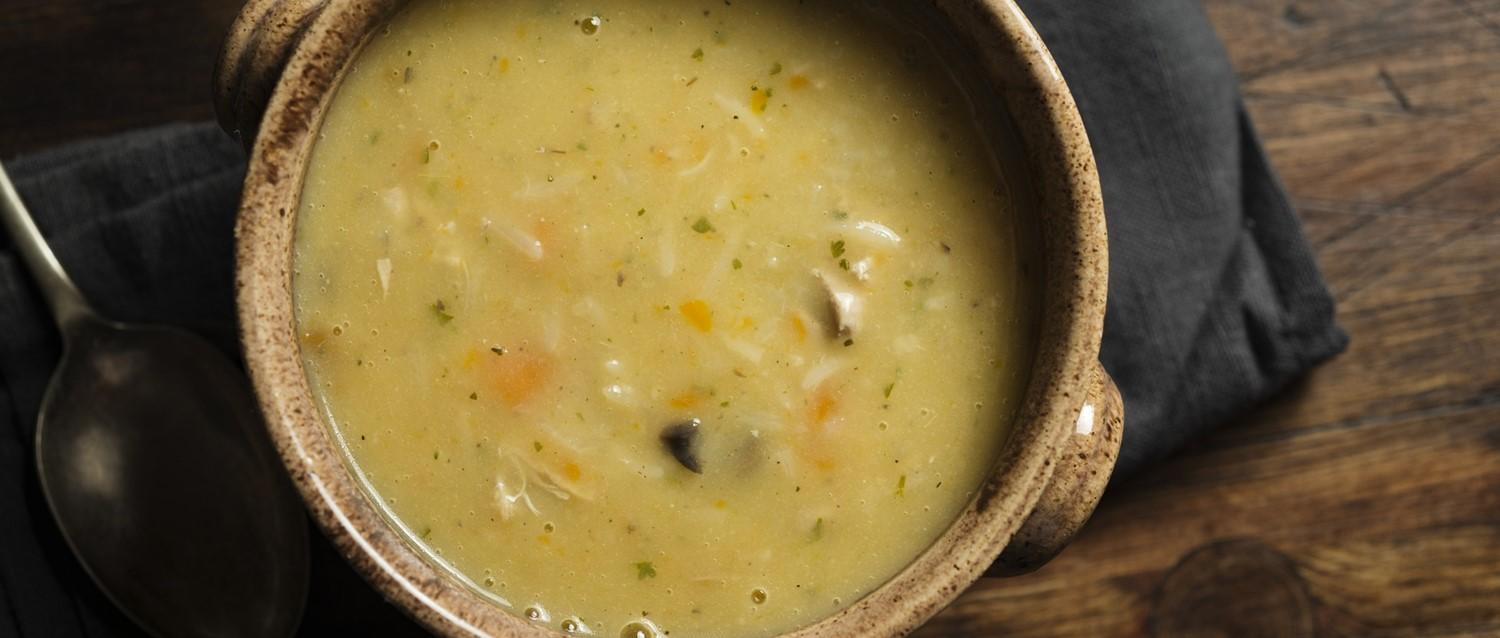
What to eat when you have a cold
Peer reviewed by Dr Sarah Jarvis MBE, FRCGPAuthored by Rose Constantine Smith, ANutrOriginally published 21 Dec 2023
Meets Patient’s editorial guidelines
- DownloadDownload
- Share
- Language
- Discussion
At certain times of the year, it seems that every other person you see is sniffling, coughing or sneezing and that catching a cold is almost unavoidable. But is there anything that you can do to reduce the chances of catching a cold, or to help treat it if you catch one? We take a look at the foods that might help.
In this article:
Continue reading below
How to avoid getting ill
Colds are very common, especially in winter. However, you can try to equip your body to fight viruses and if caught, minimise their duration and symptoms.
Good mental and physical health are key if you want to reduce the risk of catching a cold, and how long it lasts. Here are a few of the best choices you can make:
Minimise stress
Although this can often be difficult in the environment we live in, reducing the stresses we expose ourselves to can reduce our susceptibility to catching a cold.
If you are living in a stressful environment, try taking time out to do the things that you enjoy, or regularly listen to mindfulness apps such as Headspace, as this can help to minimise the stress in the body.
Make sleep a priority
When you sleep, your body gets a chance to repair and rebuild your defences. But if you don't get enough, the chance of poor health can increase, including your susceptibility to catching a cold.
If you struggle to get to sleep, try allowing yourself some time to unwind before bed. For example, reading a book or doing something else you find calming that does not involve a screen.
Make up for the lack of sun
It is becoming more and more apparent that vitamin D is a key ingredient for keeping many bodily functions healthy, including your immune system. So, getting enough of it throughout the year is crucial for keeping colds at bay.
The best way to get vitamin D is from the sun. However, during the months of October through to April, the body is unable to do this due to the angle of sun. This means that a large proportion of the UK becomes vitamin D-deficient through the winter and this corresponds with when most of us get colds.
During the colder months of the year, we can make up to some extent for the lack of sun-induced vitamin D by eating certain oily fish, including salmon, mackerel, tuna and products which are fortified with it, such as some cereals. But you should be taking a supplement too.
The recommendation for the UK is that adults and children should take 10 micrograms of vitamin D3 per day throughout the year, but especially dfrom the start of October to the end of April1.
Eat your five a day
Vitamin C is also important for supporting immune function and can be found in many fruits and vegetables. A healthy, balanced diet which includes five portions of fruit and vegetables a day will provide enough of this vitamin for the average person.
For the general population, there is little evidence to show that consuming an additional vitamin C supplement will make any significant difference to the risk of catching a cold.
However, if you are an athlete training for some sort of physical event, your body is being put through an above-average level of physical stress. In this case, taking vitamin C supplements may reduce the risk of catching a cold as such stress can compromise immunity.
What to eat with a cold
There is no cure for the common cold. This is because it is caused by a virus and so it won't respond to medications such as antibiotics. As such, you are left with one option - to treat the symptoms.
Chicken soup
Chicken soup - the go-to meal if you have a cold - does actually have some scientific backing2. When the body is fighting a cold, it goes into an inflamed state. Research has shown that chicken soup reduces inflammation and therefore helps to protect against some of the annoying symptoms of a cold. Note though, that it is worth making your own or buying a better quality soup in order to ensure that you get the most benefits possible.
Hot drinks
One of the worst things about having a cold is the inability to breathe through your nose. It makes everyday activities feel much more strenuous. However, hot drinks can help.
One study found that consuming a hot drink significantly and instantly improved the airflow of those suffering from a cold3. There was also a marked improvement in other symptoms like a runny nose and a cough.
However, before you go running to buy the expensive sachet drinks with painkillers in them, you can get the same benefits by consuming tablet form painkillers alongside any hot drink, herbal or otherwise. This may be a reason why chicken soup aids cold symptoms too.
Vitamin C
For the general population, vitamin C is not thought to reduce the risk of developing a cold in the first place. But there is some evidence that vitamin C may improve symptoms and shorten the length of a cold.
The best way to do this would be through eating foods rich in vitamin C such as broccoli, strawberries and kale. Even more reason to ensure you are getting your five a day.
'Starve a fever, feed a cold'
There is mixed evidence on whether this common statement is true. It is believed that both methods - starving and feeding - create a different immune response in the body.
Some studies conclude that the response to starving increases immune cells that are best at tackling bacterial infections that cause symptoms such as a fever, often found with flu4. On the other hand, feeding seems to increase the cells which fight off viral infections, like a cold.
Continue reading below
Arm yourself against illness
Ward off the common cold by:
Eating a balanced diet each day.
Getting enough sleep.
Allowing yourself downtime to relax.
Exercising five times a week for at least 30 minutes.
Taking vitamin D3 daily.
Further reading
Patient picks for Cough and cold

Chest and lungs
Should you go to work when you have a cold?
It's a situation every employee has grappled with at some point: do you stay at home or go into work when you're feeling under the weather? Tempting though it might be to bury yourself under the duvet and settle in for a long session of daytime TV, it may not be feasible to take time off whenever you're feeling suboptimal.
by Abi Millar

Chest and lungs
How to avoid catching a cold on public transport
As any commuter will tell you, the threat of catching a cold is everywhere – from your sniffling co-passenger to that handrail everyone’s been touching.
by Danny Chadburn
Continue reading below
Article history
The information on this page is peer reviewed by qualified clinicians.
21 Dec 2023 | Originally published
Authored by:
Rose Constantine Smith, ANutrPeer reviewed by
Dr Sarah Jarvis MBE, FRCGP

Ask, share, connect.
Browse discussions, ask questions, and share experiences across hundreds of health topics.

Feeling unwell?
Assess your symptoms online for free
Sign up to the Patient newsletter
Your weekly dose of clear, trustworthy health advice - written to help you feel informed, confident and in control.
By subscribing you accept our Privacy Policy. You can unsubscribe at any time. We never sell your data.